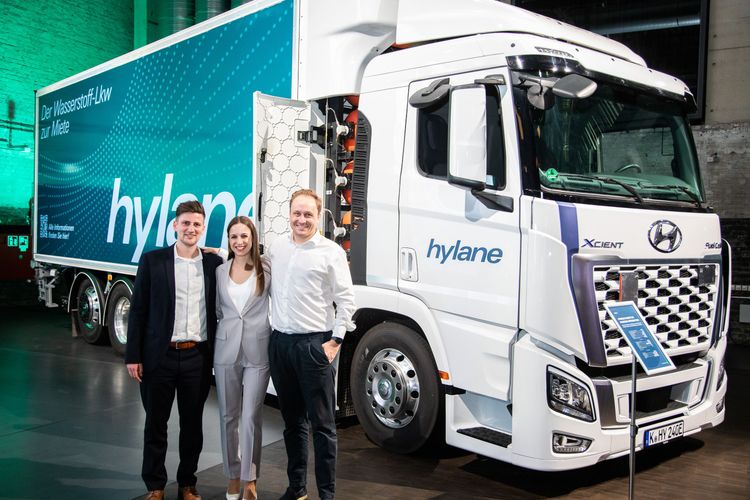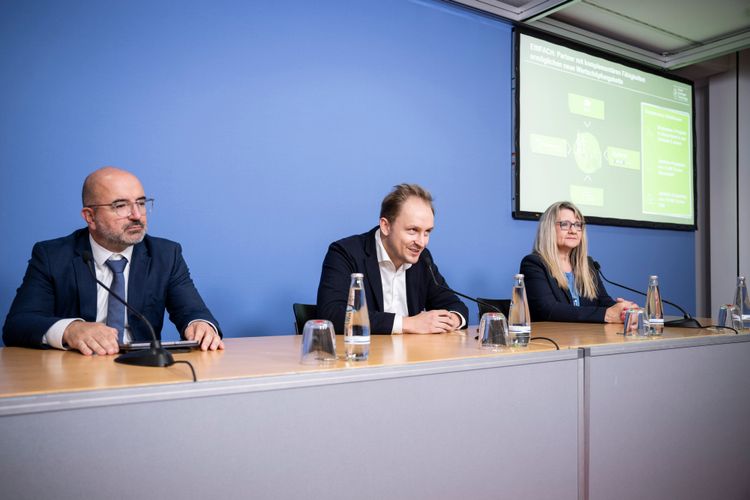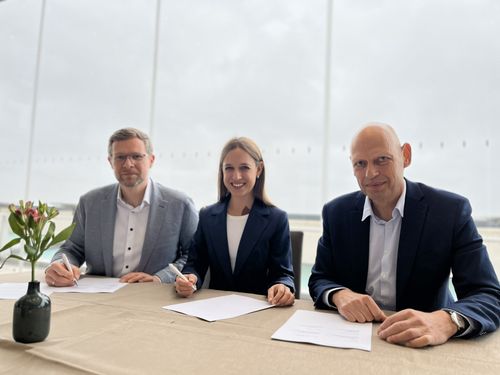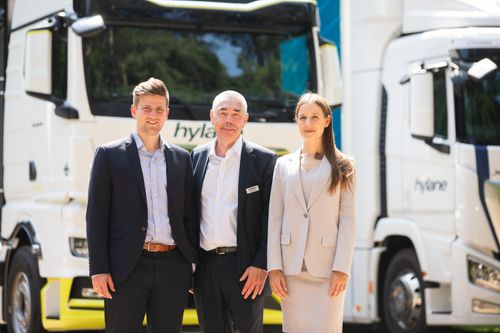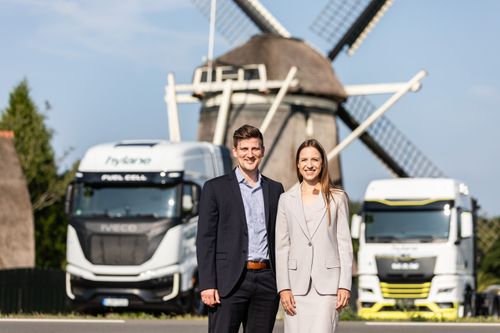The project has the potential to be a significant cornerstone in the implementation of the hydrogen economy. Here, hydrogen is produced decentrally, cost-effectively, and sustainably – without expensive electrolyzers, solar energy, or precious water.
GHT has developed a patented technology to produce hydrogen in a climate-neutral manner. The heart of the plant is a so-called entrained flow reactor, which converts non-recyclable plastic waste or other materials into synthesis gas at up to 1,600 degrees Celsius. From this, liquid CO2 as a circular product and hydrogen in fuel cell quality are directly obtained.
This opens up a future where waste is part of the cycle – and where hydrogen is not an expensive vision but an affordable reality. With production costs of up to 1.50 euros per kilogram of hydrogen, GHT sets new standards. By comparison, conventional electrolysis costs up to eight euros per kilogram. This not only opens up entirely new economic viability but also immense opportunities for investors who want to invest early in a key technology of the energy transition. The GHT model can significantly contribute to expanding and effectively implementing the hydrogen infrastructure across the board.
The first financing round underscores the confidence in the company's innovative technology. "Our partners share our vision," says GHT CEO Robert Nave, "we want to contribute to making hydrogen permanently more sustainable and affordable."
The process has already been tested and will now be put into operation on the premises of the Baden-Württemberg recycling company ETG Entsorgung und Transport. In the future, 100 tons of climate-neutral hydrogen will be produced there annually from biogenic residues – enough to meet the annual demand of a hydrogen refueling station. The groundbreaking ceremony will take place next month, and production will start in 2025.
The German energy supplier RheinEnergie enables customers to easily access the hydrogen plants as a contracting solution and can also take over the operation. "With the innovative hydrogen solution, our customers will not only benefit from sustainable supply but also from the unique economic efficiency of the technology," says RheinEnergie Sales Director Stephan Segbers. "Thanks to sector coupling across all trades, we also make an important contribution to the energy transition."
hylane, a subsidiary of the DEVK Versicherungen founded in 1886, guarantees the purchase of the produced hydrogen as the operator of the largest hydrogen truck fleet in Europe. The current fleet of hylane already has a hydrogen demand of around 1,000 tons per year. This demand will continue to rise in the coming years. hylane plans to cover a significant part of this demand with GHT's technology: "Such partnerships enable us to expand our fleet even faster," says hylane Managing Director Sara Schiffer, "and offer our customers attractive and sustainable transport solutions." Maximilian Draxler, Head of Finance at hylane, clarifies: "Our goal is to offer our customers not only ecologically but also economically sustainable hydrogen through the partnership with GHT."
But the project in Ebersbach is just the beginning of a journey that aims to redefine the future of energy supply: Together with its partners, GHT plans to implement at least five more projects in the next five years, which will produce over 2,000 tons of hydrogen annually.
This lays the foundation for an entirely new hydrogen industry – an industry that is sustainable, profitable, and globally scalable. In Germany alone, more than 1,000 recycling and disposal companies are waiting for innovative solutions to not only dispose of waste sustainably but also to recycle it profitably. Therefore, GHT will soon start a second financing round.
Germany is one of the leaders in the EU with around 237 kilograms of packaging waste per capita, especially in plastic packaging. The potential is also enormous internationally. To establish hydrogen as a central component of a climate-neutral future, production must be significantly scaled up in the coming years. This requires lower production costs, mass production, and efficient business models that combine ecological and economic benefits – like GHT's model.
The Federal Ministry for Economic Affairs and Climate Action (BMWK) also emphasizes the importance of corporate alliances for the hydrogen ramp-up: "For the ramp-up of the hydrogen economy, it is essential that various industries participate entrepreneurially with innovative technologies," says Bernhard Kluttig, Head of the Industrial Policy Department at BMWK. "Such initiatives are important to further develop the successful business models of the German industry so that they are climate-neutral and globally competitive in the future."
About the Partners
Green Hydrogen Technology (GHT), based in Augsburg, has developed a patented technology. It converts non-recyclable waste into pure synthesis gas, from which hydrogen is subsequently obtained.
RheinEnergie is a Cologne-based, nationwide active energy service provider that offers numerous environmentally friendly energy solutions in addition to electricity, natural gas, heat, and drinking water. The team of "RheinEnergie – next energy solutions" develops highly specialized solutions for customers from industry, commerce, and real estate. With the help of renewable energies, state-of-the-art plant technology, and artificial intelligence, RheinEnergie and its partners are driving the energy transition forward.
hylane rents hydrogen-powered trucks. Its customers include numerous European transport and retail companies. hylane's fleet comprises over 120 hydrogen trucks. The company was founded in Cologne in 2021 and is a subsidiary of DEVK Versicherungen. Today, hylane operates the largest hydrogen-powered truck fleet in the EU.
ETG has been disposing of commercial waste and storing hazardous waste for more than 50 years. The company includes a recycling firm for PET bottles and a company for the collection, recycling, and sorting of paper, cardboard, and cartons. Additionally, ETG has been a pioneer in the field of pyrolysis for more than ten years: materials are heated to high temperatures with as little oxygen as possible. This causes the materials to decompose rather than burn. At its site in Eislingen, more than 100 tons of biochar are already produced annually through pyrolysis.
